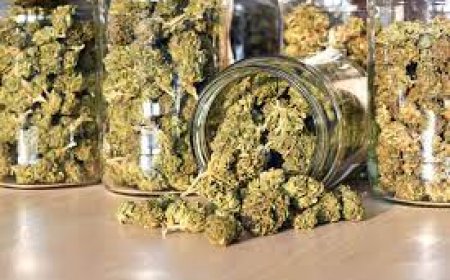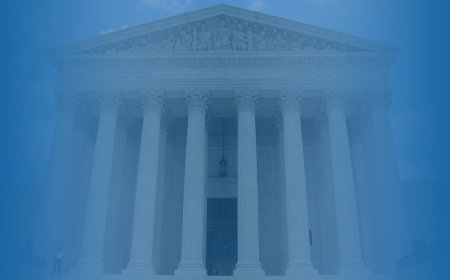The Psychology of Courage: What Drives Bold Leaders
Courageous Leadership is not reserved for the extraordinary few. It is a choice, a mindset, and a habit. It is available to anyone willing to act with conviction in the face of fear.

In every era, bold leaders have shaped historywhether by challenging entrenched systems, launching revolutionary ideas, or standing firm in the face of overwhelming pressure. But what sets these leaders apart? Is it fearlessness? Natural charisma? A high tolerance for risk?
Surprisingly, the answer lies not in the absence of fear but in the presence of something deeper: courage. And to truly understand what drives bold leaders, we must explore the psychology behind couragehow it forms, what it demands, and why it matters now more than ever.
What Is Courage, Really?
Courage is often misunderstood as bravado or recklessness. In truth, psychological courage is the ability to act in alignment with ones values and purpose despite fear, uncertainty, or potential loss. Its not about being unafraid; its about moving forward even when you are.
Psychologist Cynthia Pury, who has studied courage in various professions, explains that courage is voluntarily acting for a meaningful (noble, good, or practical) goal despite the presence of significant risk, fear, or uncertainty.
Courage, then, is a deliberate act. It involves awareness of the danger or discomfort ahead, a conscious decision to engage with it, and a commitment to a greater purpose that justifies the risk.
The Brain on Courage
Neurologically speaking, courage involves a unique interplay between emotion and reason. The amygdalaour brains fear centeractivates in threatening situations, preparing the body to flee or freeze. But in courageous individuals, the prefrontal cortexthe area responsible for planning, logic, and impulse controlsteps in to modulate that fear response.
In a now-famous 2007 study, researchers at the Weizmann Institute of Science scanned the brains of participants exposed to threatening stimuli. Those who chose to confront the threat showed increased activity in the subgenual anterior cingulate cortexa region linked to decision-making and emotional regulation. This suggests that courage isnt about suppressing fear, but about managing it through conscious choice.
This neurological balance allows bold leaders to assess risk, regulate emotion, and act intentionally rather than impulsively. It explains why courage looks different from blind confidence or high-stakes thrill-seeking. Its grounded in awareness and driven by purpose.
The Psychological Traits of Bold Leaders
Not everyone reacts to fear or uncertainty in the same way. Certain psychological traits and habits tend to support courageous behavior in leaders. Here are a few key drivers:
1. Self-Awareness
Bold leaders know themselves. They understand their fears, triggers, and limitations. This self-awareness allows them to separate emotion from fact and to make decisions that are both brave and rational. Theyre not led by ego or impulse but by insight.
2. Emotional Resilience
Resilience is the capacity to recover from setbacks and continue forward. Leaders who act courageously often have a high tolerance for discomfort, criticism, or ambiguity. They dont crumble when things go wrong; instead, they learn, adapt, and persist.
3. Strong Moral Compass
At the heart of courage is a commitment to values. Bold leaders act not for applause but for principle. Whether it's integrity, justice, equity, or innovation, their behavior is anchored in something larger than personal gain. This sense of mission sustains them when the cost of action is high.
4. Empathy and Compassion
Interestingly, courage is often fueled by care for others. Many of the boldest leadersthink Nelson Mandela, Malala Yousafzai, or Martin Luther King Jr.acted out of deep empathy for those who suffered. They found strength in service, not self-interest.
5. Growth Mindset
A belief in ones ability to learn and improve fuels courage. Leaders with a growth mindset are less afraid of failure because they see it as part of the learning process. This flexibility makes them more willing to take calculated risks and venture into the unknown.
Context Matters: The Role of Environment
While psychological traits matter, the context in which leaders operate also influences their courage. Supportive environmentswhere failure is not punished, and dissent is encouragedfoster more courageous behavior. Toxic environments, by contrast, tend to stifle bold action and reward conformity.
Organizational culture, team dynamics, and leadership at the top all shape whether individuals feel safe enough to take risks. Bold leadership often thrives in cultures where vulnerability is seen as a strength and ethical behavior is non-negotiable.
The Invisible Burden of Boldness
Being a bold leader is not glamorous. Often, its lonely, exhausting, and thankless. Speaking up, challenging norms, or making unpopular decisions can isolate a leader. Thats why true courage isnt about winningits about doing whats right, regardless of the outcome.
The fear of losing credibility, status, or relationships is real. Many bold leaders admit to grappling with imposter syndrome, anxiety, or self-doubt. What sustains them isnt invincibilityits the conviction that their actions matter.
This nuance is critical. When we idolize bold leaders as fearless heroes, we miss the depth of their struggle. Courage is often quiet. Its choosing the ethical path when shortcuts are easier. Its listening instead of speaking. Its standing alone until others are ready to follow.
Real-World Examples of Courage in Leadership
Courageous acts in leadership show up in many forms:
-
Whistleblowing: Employees who risk their careers to expose unethical practices.
-
Disruptive Innovation: Entrepreneurs who challenge outdated industries or norms.
-
Radical Inclusion: Executives who prioritize diversity even when it meets resistance.
-
Authentic Vulnerability: Leaders who admit mistakes publicly to rebuild trust.
Each of these examples reflects a willingness to endure discomfort for a greater cause. They are not decisions made lightlythey are choices that reflect a deep sense of purpose.
How to Cultivate Courage in Yourself
Courage is not just for CEOs or change-makers. Its for anyone who wants to live and lead with integrity. Heres how to start:
-
Name Your Fears: Get honest about whats holding you backwhether its fear of failure, rejection, or uncertainty. Awareness is the first step toward agency.
-
Clarify Your Values: When you know what matters most, it becomes easier to take a stand. Write down your core values and use them to guide decisions.
-
Start Small: Practice small acts of couragespeaking up in a meeting, admitting a mistake, or asking for feedback. These build confidence over time.
-
Seek Support: Boldness doesnt mean going it alone. Surround yourself with people who encourage principled risk-taking and who hold you accountable to your best self.
-
Reflect Often: Courage grows through reflection. What did you do today that stretched you? What would you do differently next time?
Courage in Todays Leadership Landscape
In a world defined by disruptionclimate change, political polarization, economic instabilitybold leadership is more urgent than ever. Leaders are called not just to perform, but to transform. That requires not only skill and vision but also bravery.
Courageous Leadership is not reserved for the extraordinary few. It is a choice, a mindset, and a habit. It is available to anyone willing to act with conviction in the face of fear.
Whether you lead a team, a company, a classroom, or your family, the psychology of courage can illuminate your path forward. Its not about being fearlessits about doing what matters, especially when its hard.






































